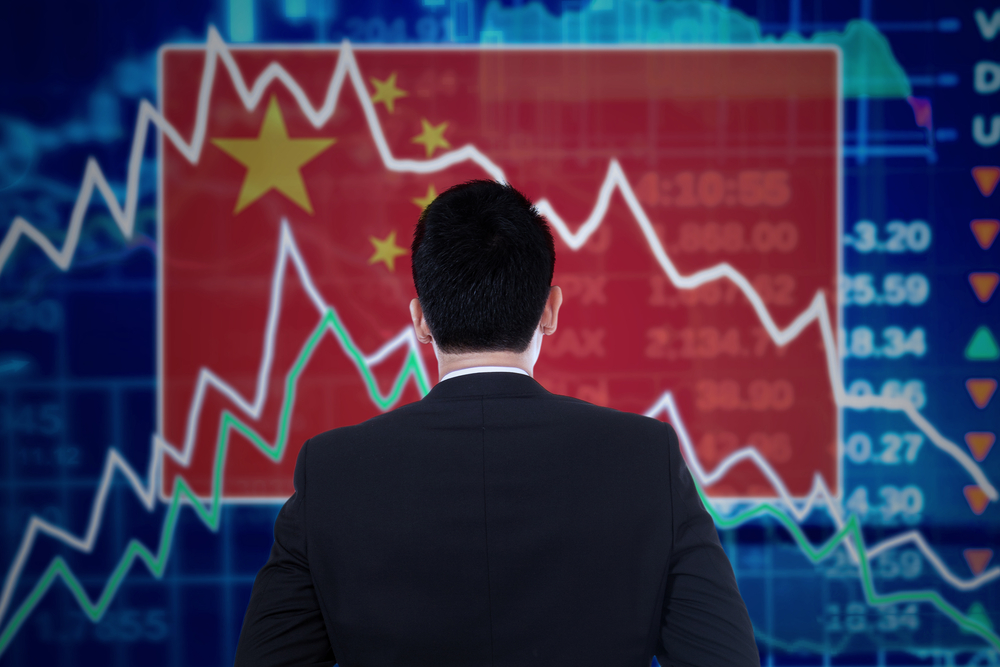On Monday, U.S.-listed Chinese stocks lost tens of billions of dollars in market value in a single session, plunging to their lowest level in nearly a decade.
It was the biggest rout in Chinese stocks since the global financial crisis.
The Nasdaq Golden Dragon China Index, which tracks dozens of Chinese companies listed on American exchanges, fell over 14% to close at its lowest level since 2013.
A buying opportunity?
Hardly. I’d call it a warning shot across the bow for potential investors. (And a shot through the leg for existing ones.)
While I haven’t recommended an individual Chinese stock in years, I have been bullish on the country’s economic future in the past.
Despite its authoritarian government, its embrace of free-market principles produced an economic miracle.
Hundreds of millions of citizens moved from poverty into the middle class.
My hope was that as the country liberalized economically, it would begin to liberalize politically.
That’s clearly not happening now. China is moving in the opposite direction. And that move is accelerating.
As a result of recent political developments, I don’t expect to own a China-based company again. Ever. (Or at least, not while President Xi and his merry band are in power.)
I wouldn’t own Baidu, Tencent, JD.com, PetroChina or even Alibaba. And, if you’re smart, you won’t own them either.
Here’s why…
Monday’s sell-off in China stocks was not related to the global economy or the U.S. market.
Indeed, most stocks finished higher that day.
The frantic selling – which started in the China and Hong Kong markets overnight and spread to U.S.-listed Chinese firms the next morning – was due entirely to Xi consolidating his control over the ruling Communist Party.
He stacked the leadership ranks with lackeys and clinched a convention-defying third term as president.
In response, many prominent Chinese stocks – including Alibaba – slid to levels not seen since their initial public offerings.
And it’s not hard to see why…
Foreign investors have had to endure a lot from Chinese government officials over the last few years.
They lied and covered up the origins of COVID-19, doing everything possible to stymie an international investigation.
They used ineffective, locally made vaccines – while refusing Western ones that do an effective job of preventing hospitalization and death – and instituted a zero-COVID policy that resulted in factory lockdowns and city closures.
They discriminated against public and private companies while subsidizing state-owned or -controlled enterprises.
They have prioritized Communist ideology over economic growth.
They have given up the pragmatism of previous Chinese leaders like Deng Xiaoping, who – while no paragon himself – was at least dedicated to pro-business policies and wider prosperity.
And – the final straw – over the weekend, Xi cleaned house to start his third term… and probable lifelong tenure.
He cleared out potential rivals and underlings who might be willing to communicate the negative outcomes of Communist policies.
In their place, he appointed a slate of senior Communist Party apparatchiks best known for kowtowing to the supreme leader.
China’s quest to become the world’s dominant economic power is over.
A command-and-control economy – with state dominance and widespread government corruption – has never worked in the past.
Not in China. And not anywhere else.
Understood in this light, investors’ dash for the exits this week is entirely rational.
Less rational is that the world’s largest money manager – BlackRock – announced that it remains “neutral” on Chinese stocks and bonds.
Here you see the problem for retail investors: massive conflicts of interest.
As the world’s second-largest economy, China offers tremendous potential for profit-oriented organizations that stay on Xi’s good side.
But businesses cannot operate effectively without trust. And that is now sorely lacking in China.
Chinese stocks have fallen a long way since the beginning of last year. As I write, the iShares MSCI China ETF (Nasdaq: MCHI) is down almost 60%.
There will be rallies – possibly big ones – in the weeks and months ahead. But I expect them to be short-lived.
Clearheaded investors will give Chinese stocks a miss.
Why? Because successful investing is about the intelligent management of risk.
And investing your hard-earned capital in a country run by a corrupt autocrat and his hand-picked sycophants is not smart.
It’s always been a bit like the Wild West investing in China’s largely unregulated financial markets.
But now the bad guy is the sheriff… with unchecked power.
Communist Capitalism – rather than evolving into something Westerners recognize and understand – is being exposed for what it really is: the ultimate oxymoron.
Good investing,
Alex
P.S. Another corrupt autocrat – Vladimir Putin – also tanked his local financial markets this year. But at least his colossal mistake in Ukraine has created tremendous investment opportunities elsewhere. To learn how you can profit from Putin’s folly, go here.
